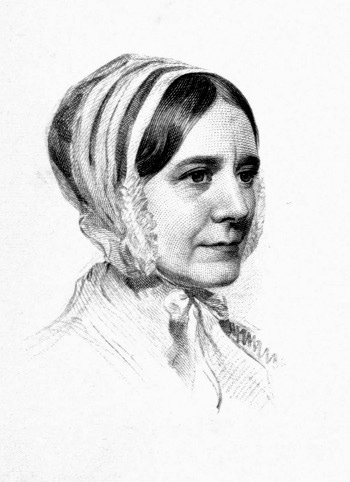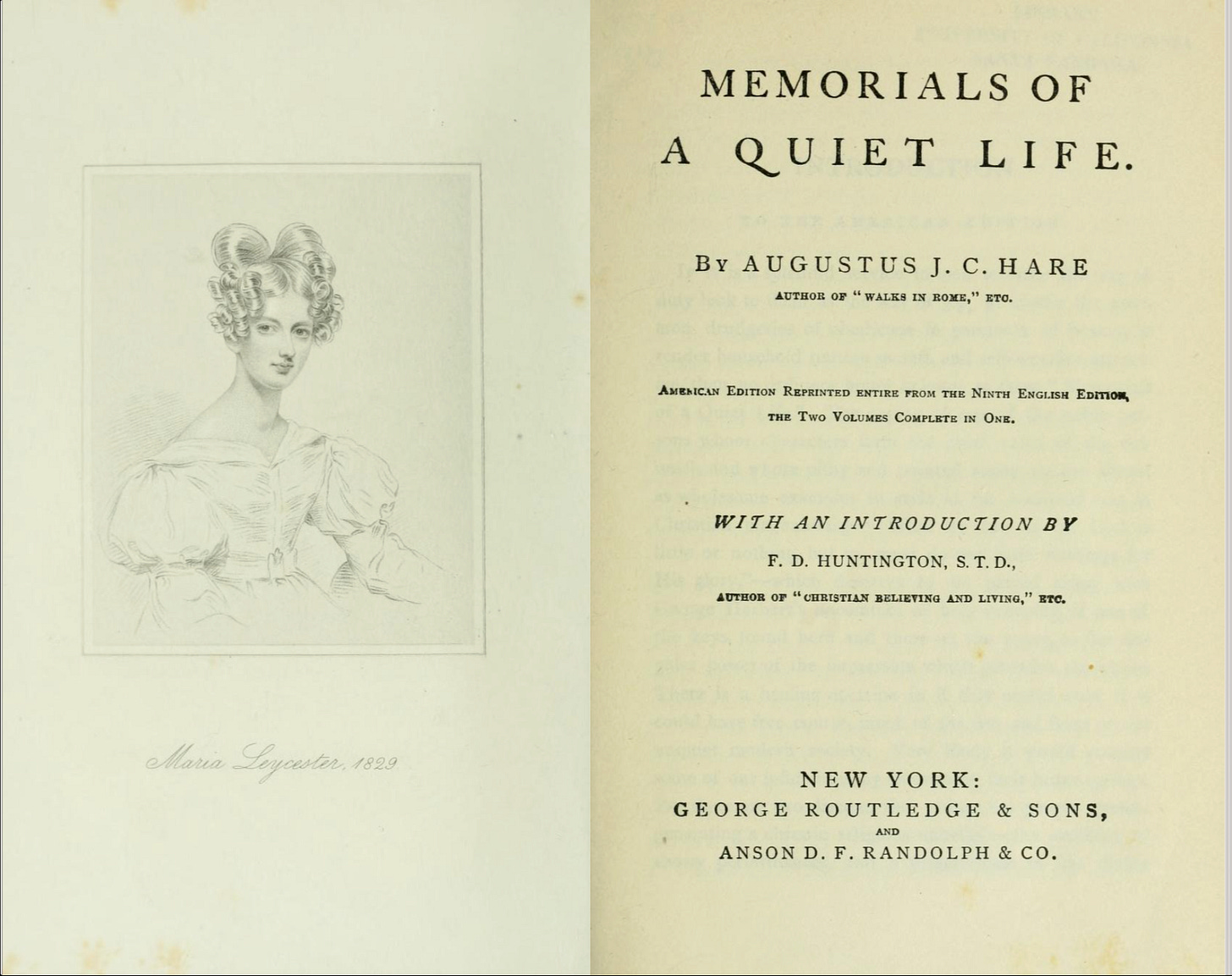The Prayers of That Great Cloud of Witnesses
"A Who-Dunnit" Compendium Entry
I’m still trying to find out who wrote today’s prayer. The Presbyterian Book of Common Worship cites one “Maria Ware (1798).” Yet I have been unable to find her. Strangely, there is a Mary Ware born in 1798 and a Maria Hare born the same year. They both have left books behind: Edward B. Hall’s Memoir of Mary L. Ware, wife of Henry Ware, Jr. and Augustus J.C. Hare’s Memorials of a Quiet Life, featuring his wife, Maria Leycester Hare. I would love to have your help in figuring out whether one of the two wrote this prayer or if there is a Maria Ware I have been unable to find. Let me know if you find her!
Both of these books, linked above, are wonderful stories about daily life in the early 19th century. They reflect on the purpose of life and on the responsibility to live life well; a conversation strangely missing from our own cultural conversation. Christianity was not a worship service on Sunday. It was the world they inhabited in life and in death. Both books describe sermons, prayers, family worship, and memorized poetry as regular daily fare - practices sadly uncommon in our day.
Today’s prayer, whether by Maria Ware, Mary Ware, or Maria Hare, reflects this familiarity with Scripture. When I think of prayers in the Bible, I think of the Psalms, or the Lord’s Prayer, or Paul’s prayers for the Ephesians and Colossians. The book of Daniel doesn’t come to mind. Yet the first part of this prayer is a quote from a prayer of Daniel in the book that bears his name:
We do not make requests of you because we are righteous, but because of your great mercy. Lord, listen! Lord, forgive! Lord, hear and act! -Daniel 9:18b-19a
Daniel, a Jewish exile to the Babylonian capital, had just determined, from reading Scripture and hearing Jeremiah the prophet, that his people’s struggle under Babylonian oppression would last another 70 years. His response to this distressing news was to confess his culpability, to pray for his people, and to fast in sackcloth and ashes.
Maria or Mary appropriates Daniel’s mindset to her own situation, beginning with his words and then developing them further as she asks for God’s continuing grace beyond her words and actions:
Lord, hear; Lord, forgive; Lord, do.
Hear what we speak not; forgive what we speak amiss; do what we leave undone, that not according to our words, our deeds, but according to your mercy and truth, all may work for your glory, and the good of your kingdom, through Jesus Christ. Amen.
The goal of this prayer, as of her life, is for God to be glorified and to makegoodhappen.
This prayer provides us several ways to respond to God:
Memorize and pray this prayer in those times in which our words and actions have not reflected Christ.
Study Daniel’s full prayer and see what else we can learn from him.
Identify our favorite prayers from the Bible (don’t forget the many prayers of the book of Psalms) and list them in our prayer book.
Use verses of our favorite prayers of the Bible as the basis for writing our own prayers.



